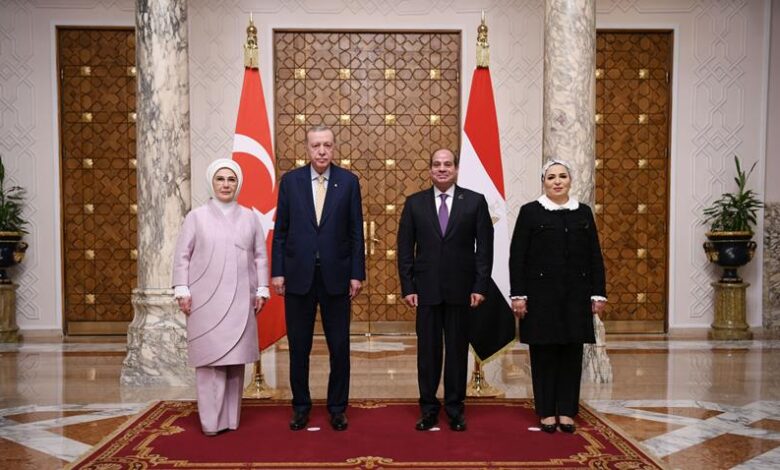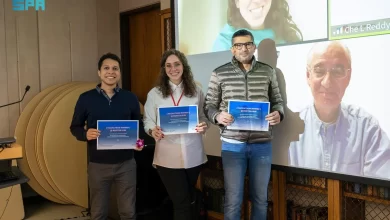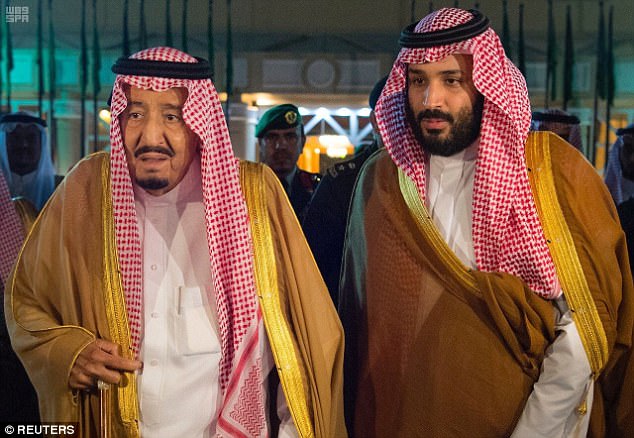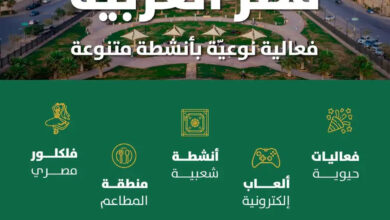
Ahmed Mustafa
Groups of clouds may diverge depending on weather interactions and weather changes and the negative or positive impact of this on the components of the land, led by humans. However, they soon converge due to historical roots and the connection of geography. With the eagerness of lovers, the clouds hug each other tightly, illuminating the sky with its lightning, and the thunder cheers with joy, causing rain to fall. So abundant, the earth shakes to enjoy every joyful pair of fragrant roses… and so the meeting of President Abdel Fattah El-Sisi and his brother, President Recep Tayyip Erdogan.
Undoubtedly, the main agenda of Erdogan’s visit is the Zionist war on Gaza, the ongoing genocide against the Palestinians, and the necessity of establishing a fully sovereign Palestinian state to end regional tensions. Both countries are major stakeholders in the Middle East, along with Iran and Saudi Arabia. The conflict in Libya will be the main focus, with Turkey supporting the UN-recognised Government of National Accord, while Egypt supports the Libyan National Army led by Khalifa Haftar. The talks between Erdogan and Sisi aim to find a solution to this issue and calm tensions in the region.
Economic cooperation between Turkey and Egypt is also expected to improve, as Turkey is one of Egypt’s five largest economic partners. Erdogan’s visit was met with cautious optimism, but it remains to be seen whether they can find common ground and move toward a new era of cooperation and mutual respect.
Eastern Mediterranean gas
The eastern Mediterranean region has been a hotbed of tension and conflict, with countries vying for control of its vast natural resources. The discovery of huge gas reserves in the region has made the situation even more heated. Egypt and Turkey, with their presidents Abdel Fattah al-Sisi and Recep Tayyip Erdogan, have decisive influence over the region. As they meet to discuss various issues, one of the most pressing topics is eastern Mediterranean gas. Tensions escalated between the two countries due to conflicting claims over gas fields and maritime borders, leading to confrontations, military deployment, and threats to impose sanctions.
The involvement of other regional and international powers, such as Greece, Cyprus, Israel and the European Union, has further complicated the situation. The discussion between Sisi and Erdogan over Eastern Mediterranean gas is crucial to the stability and security of the entire region, as the outcome could have far-reaching implications for energy cooperation, political alliances, and the overall geopolitical landscape of the Eastern Mediterranean. It is necessary for Sisi and Erdogan to find common ground and work to reach a mutually beneficial solution that takes into account the interests and concerns of all parties involved.
Genocide of Gaza and Rafah
The ongoing conflict between Israel and Palestine has led to many tragedies, including the systematic genocide in the Gaza Strip and Rafah. This area, controlled by the armed Palestinian movement Hamas, has been subject to an Israeli military siege for years, which has led to the death and displacement of thousands of innocent civilians. Homes, hospitals and basic infrastructure have been destroyed, leaving citizens in miserable humanitarian conditions. Egypt and Turkey play important roles in this conflict, but Western Zionist media claim that Egyptian President Abdel Fattah al-Sisi has been a strong supporter of the Israeli government, even cooperating with it in its blockade of Gaza.
Turkish President Recep Tayyip Erdogan has been a strong supporter of the Palestinian cause, often criticizing Israel’s actions and calling for an end to the violence. The two leaders must discuss the devastating impact of the genocide in Gaza and Rafah during their meeting today, and work to find a solution that allows for the protection and safety of their people.
The genocide caused a huge loss of life, severe economic and social repercussions, and affected the mental health of the citizens of Gaza and Rafah, especially children. The disregard for international law and human rights in this conflict is a major concern, and Sisi and Erdogan must address this violation and work to hold responsible parties accountable.
In addition, there is a need to address the refugee crisis resulting from the systematic genocide in Gaza and Rafah, where residents are forced to flee their homes and seek refuge in neighboring countries, exacerbating the humanitarian crisis in the Middle East. Egypt, Turkey, and Iran should join South Africa in its lawsuit against Israel at the International Criminal Court, and insist that more war criminals be brought to justice.
Great Libyan interest on the talks between Sisi and Erdogan
The Libyan divide, a long-standing issue in the North African country, is a major topic of interest in talks between Egyptian President Abdel Fattah al-Sisi and Turkish President Recep Tayyip Erdogan. The two leaders are scheduled to meet in Cairo to discuss how to address the escalating crisis in Libya, which has caused enormous suffering to the Libyan people and has far-reaching implications for the stability of the entire region. Since the fall of Muammar Gaddafi in 2011, Libya has been engaged in a complex and multifaceted civil war, with various factions and foreign powers vying for control. The country is currently divided between the Government of National Accord in Tripoli and the Libyan National Army in Tobruk. This division has led to continued violence, bloodshed and a power vacuum, allowing extremist groups such as ISIS to gain a foothold. The intervention of external actors such as Turkey and Egypt has further complicated the conflict and hampered efforts to reach a peaceful solution. However, recent months have seen some glimmers of hope to a possible ceasefire and political solution. Egyptian-Turkish relations were tense, but the two leaders expressed their willingness to work to find common ground and reach a political settlement in Libya. A successful outcome could provide relief to the Libyan people and have positive effects on the region as a whole.
Greater Egyptian-Turkish economic relations and G8 cooperation within the discussions between Sisi and Erdogan
The relationship between Egypt and Turkey has developed significantly in recent years, with a focus on economic cooperation. Egyptian President Abdel Fattah El-Sisi and Turkish President Recep Tayyip Erdogan are scheduled to hold talks focused on strengthening economic relations and cooperation within the framework of the Eight Development Organization (D8). The two countries recognized the potential for greater economic cooperation and took steps to improve trade and investment. In 2019, they signed a free trade agreement aiming to increase their trade volume to $5 billion by 2020.
Recent economic reforms and mega projects in Egypt, such as the New Administrative Capital, have attracted Turkish investors, who have become one of the most important sources of foreign direct investment in Egypt. This has led to joint projects and increased cooperation in sectors such as construction, energy and tourism.
Egypt and Turkey are members of the D8 Organization, a group of developing countries focused on expanding trade and economic cooperation among its members. Their cooperation within the G8 can play a crucial role in revitalizing the organization and achieving its goals. Key topics on the agenda include joint infrastructure projects, trade and investment facilitation, and cooperation in the areas of energy and technology.
By 2024, the trade volume between Egypt and Turkey is expected to reach new heights due to significant economic growth and strengthening trade relations. The total volume of merchandise trade between the two countries reached $5.8 billion in 2020, illustrating the already strong trade partnership between Egypt and Turkey. However, experts expect this number to double by 2024, reaching a total trade volume of $12 billion.
Deepening economic and political cooperation between Egypt and Turkey contributed to increasing the volume of trade between the two countries. Since the early 2000s, the two countries have worked to improve bilateral trade relations through various initiatives, such as establishing a joint economic committee and signing several cooperation agreements.
In addition to traditional trade, both countries are focusing on increasing investments in their respective economies. Turkish investors are increasingly attracted to Egypt due to its strategic location, growing consumer base and business-friendly environment, while Egyptian companies are eyeing opportunities in the Turkish market. This mutual investment is expected to strengthen the trade partnership between the two countries and lead to an increase in trade volume by 2024.
Cooperation in scientific, cultural, digital and artificial intelligence research should be a part of the talks
Egypt and Turkey have a long history of scientific achievements in fields such as mathematics, astronomy, and medicine. With the rise of globalization and technological advancement, there is an increasing need for cooperation and knowledge exchange between countries to meet global challenges and promote scientific progress. The two countries have taken steps towards establishing strong partnerships in these areas, but there is still room for further development.
Regarding scientific research, in Egypt and Turkey there are many universities and research institutions dedicated to various fields of study. They have collaborated on many research projects, especially in the fields of medicine and agriculture. For example, Istanbul University Faculty of Medicine works with the National Research Center in Egypt on projects related to oncology and infectious diseases. Such cooperation not only contributes to international scientific knowledge, but also promotes cultural exchange and understanding.
Egypt and Turkey share a rich cultural heritage, and there is a common interest in preserving and promoting these traditions. The two countries signed cultural cooperation agreements, including joint exhibitions, artistic exchange programs and the preservation of historical sites. The digitization of cultural artifacts is another area in which Egypt and Turkey can cooperate. By sharing resources, knowledge and experience, Egypt and Turkey can accelerate their growth in the artificial intelligence sector and contribute to solving global challenges.
In recent years, there has been increasing interest in the fields of scientific research, culture, digitalization and artificial intelligence. These areas have been identified as key drivers of economic growth and development, and many countries around the world are investing heavily in these areas. Egypt and Turkey, as major players in the region, have realized the importance of these areas and the potential they hold for enhancing cooperation between the two countries.
Scientific research is one of the main areas in which cooperation between Egypt and Turkey can be strengthened. Both countries have a long history of scientific achievements and strong academic traditions. By collaborating on scientific research, they can combine their expertise and resources to address pressing challenges and make groundbreaking discoveries. This cooperation could lead to joint publications, knowledge exchange, and the establishment of joint research centers, technology parks, and innovation centers, which can attract global investments and talent.
Getting rid of the US dollar will stimulate mutual tourism and business between Egypt and Turkey
Egypt and Turkey are turning to their national currencies, the Egyptian pound and the Turkish lira, as a strategy to stimulate tourism and mutual business between the two countries. Switching to the two countries’ currencies will not only benefit the economies of Egypt and Turkey, but will also promote stronger relations through increased tourism and trade.
Egypt and Turkey have always been attractive tourist destinations due to their rich cultural heritage, stunning landscapes and diverse activities. However, the use of a having the US dollar as the base currency for financial transactions has been a deterrent for many tourists, as exchanging their national currencies for dollars can result in additional costs. By eliminating the dollar and using their own currencies, Egypt and Turkey can make it easier and more cost-effective for tourists to visit, boosting tourism.
Businesses from both countries have faced difficulties in conducting trade due to the fluctuating dollar exchange rate and additional costs associated with currency conversion. Eliminating dependence on the dollar and conducting trade in their own currencies will lead to more stable and predictable financial transactions, increased confidence and growth in trade between the two countries.
Getting rid of the US dollar will also have a positive impact on the economies of the two countries, as it will reduce their dependence on the dollar, diversify their foreign currency reserves, and strengthen their economies. In addition, switching to the two countries’ currencies will enhance economic cooperation between Egypt and Turkey, leading to increased bilateral trade and investments, and creating new markets and job opportunities for both countries.
Egypt and Turkey should work together to find practical solutions to refugees and illegal migration
Egypt and Turkey, neighboring countries, have been greatly affected by the ongoing refugee crisis and illegal migration. Both countries share common borders and are considered major transit points for refugees and migrants seeking a better life in Europe. However, the influx of refugees and migrants poses numerous challenges, including limited resources, social and economic pressures, and security concerns.
To effectively address these issues, Egypt and Turkey must cooperate in finding practical solutions. One potential solution could be to establish joint refugee processing centers near their shared border, which would improve refugee claims processing and streamline the asylum process. This would also reduce the burden on host countries.
Egyptian-Turkish cooperation could also include providing support and assistance to countries facing large numbers of refugees, such as Lebanon and Jordan, to help address the root causes of the refugee crisis. Implementing effective border control measures will prevent illegal migration and combat human trafficking networks that exploit vulnerable individuals who seek to cross their borders.
Addressing the social and economic impact of the refugee crisis, such as providing access to education, healthcare and employment opportunities, can reduce the burden on host countries’ resources and provide refugees with a better future.
In addition, Egypt and Turkey face security challenges from terrorist organizations exploiting the chaotic situation to recruit refugees and vulnerable migrants. By coordinating efforts and sharing intelligence, the two countries can better combat these threats and enhance regional security.
By cooperating and finding practical solutions to refugees and illegal immigration, Egypt and Turkey can build stronger diplomatic and economic relations, which could lead to increased trade and investment opportunities, which will benefit both countries and enhance regional stability.
In conclusion, the ongoing genocide in Gaza and Rafah requires urgent discussion by leaders like Sisi and Erdogan. The international community must take the necessary measures to end this violence and human rights violations. The trade partnership between Egypt and Turkey is expected to flourish in 2024, benefiting both economies and enhancing diversified relations. Egyptian-Turkish cooperation in scientific research, culture, digitalization, artificial intelligence, and startup incubators can enhance economic and youth partnerships. Eliminating the US dollar as the primary currency for financial transactions between Egypt and Turkey could make tourism more accessible to tourists, boost trade, reduce dependency, and enhance economic cooperation. Addressing the refugee and illegal migration crisis requires collective efforts to find long-term solutions, paving the way for a more stable and prosperous future in the region.
* The writer: Head of the Asia Center for Studies and Translation
Member of the African Council for Social Science Research Studies, CODESRIA – Senegal, as well as the Russia and Islamic World Strategic Vision Group
Master in Political Economy and Russian Studies – Higher School of Economics – Moscow




